Editor’s note: This article was originally published in 2013 but we’ve added some updates to reflect the most recent IPCC report, which was released in October.
What happens when a scientist picks up a paintbrush? A 2,000-page report is condensed into a beautiful (and concise) work of art. This all-time favorite Sightline article from 2013 is part poetry, part watercolor, and part powerful climate change talking points.
A little background: The reports released by the Intergovernmental Panel on Climate Change (IPCC) can be daunting, even for science and policy insiders. The full Physical Science Assessment, the first installment of the 2013 Fifth Assessment Report, was more than 2,000 pages. The Summary for Policymakers, rather optimistically referred to as a “brochure,” was released the same year as a dense 27 pages.
(The 2018 report was described as a “dire picture of the immediate consequences of climate change than previously thought,” by the New York Times. You can read that report here.)
What if we could communicate the essence of this important information in plain language and pictures? Well, that’s just what one Northwest oceanographer has done. He distilled the entire 2013 report into 19 illustrated haiku.
The result is stunning, sobering, and brilliant. It’s poetry. It’s a work of art. But it doubles as clear, concise, powerful talking points and a compelling visual guide.
How did it come about? Housebound with a rotten cold one weekend, Greg Johnson found himself paring down his key takeaways from the IPCC report into haiku. He finds that the constraints of the haiku form help to focus his thoughts (he told me back then that he posts exclusively in haiku on Facebook, in fact!) and described the process as a sort of meditation. He never intended to share these “IPCC” poems.
Johnson’s daughter, an artist, inspired him to try his hand at watercolors. On a whim, he illustrated each haiku and shared the results with family and a few friends.
When I got wind of it, I had to see it. And I’m glad I had the chance. I immediately wanted everybody I know to see it, too!
Condensing to this degree is not how scientists typically operate. But, as Johnson proves, scientists can also be poets. Still, he’s quick to caution that this is his own unofficial artistic interpretation and that it omits all the quantitative details and the IPCC’s scientific qualifications.
Therein lies the beauty: stripped of the jargon and unfathomably large numbers, this is an arresting and informative entrée into the science—not, of course, a substitute for the full report.
We are delighted to share Johnson’s beautiful meditation here (and below as a PDF, DIY booklet, and video slideshow for personal or educational nonprofit use). You can also find the entire collection in Spanish here.
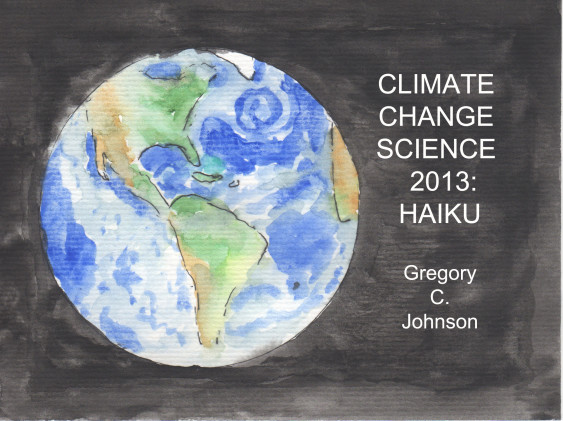
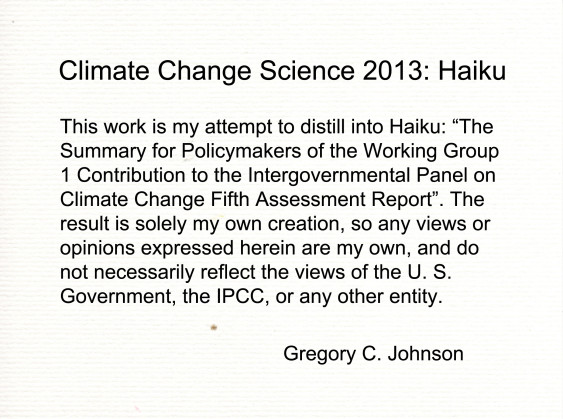
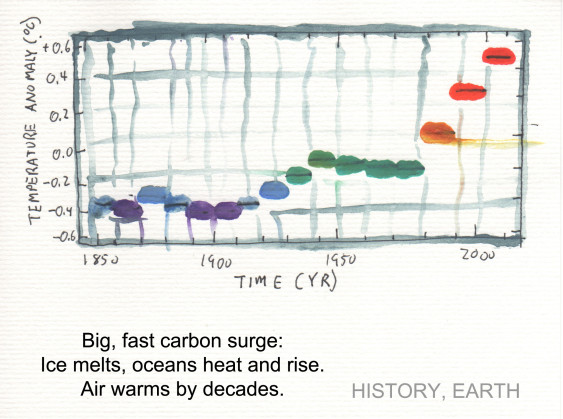
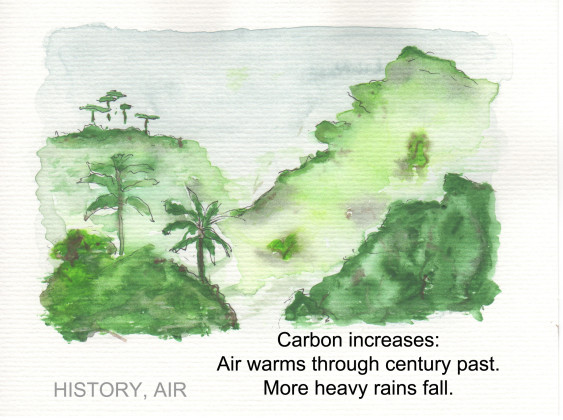
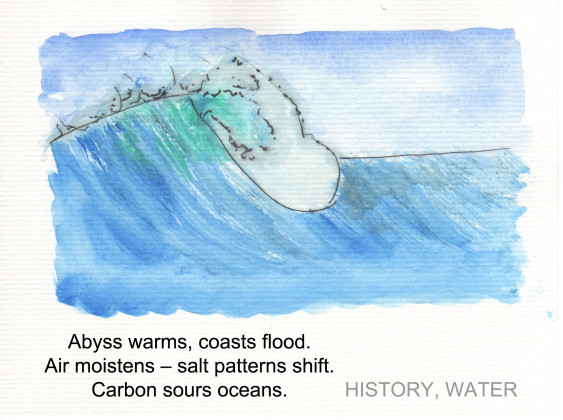
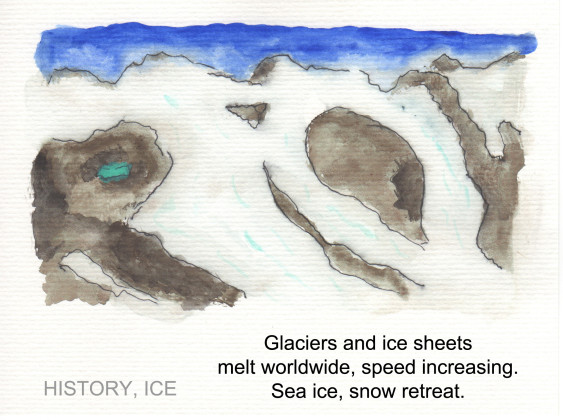
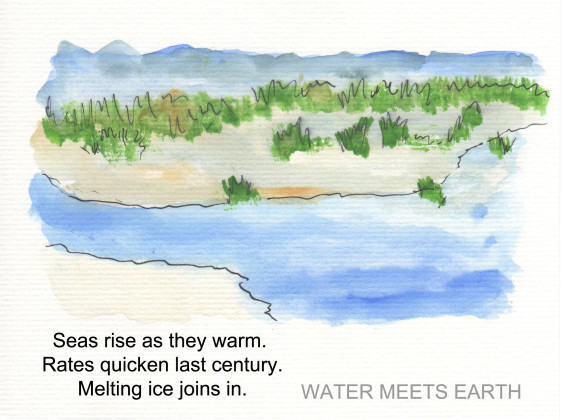
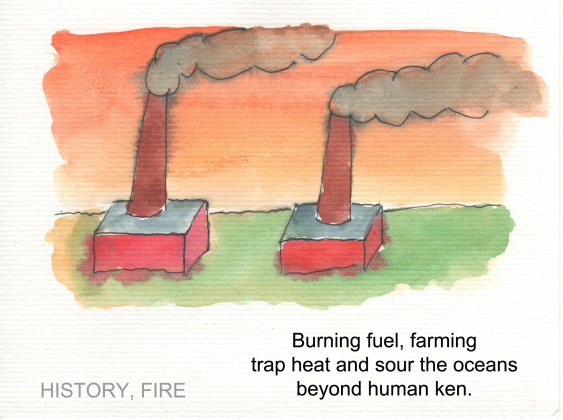
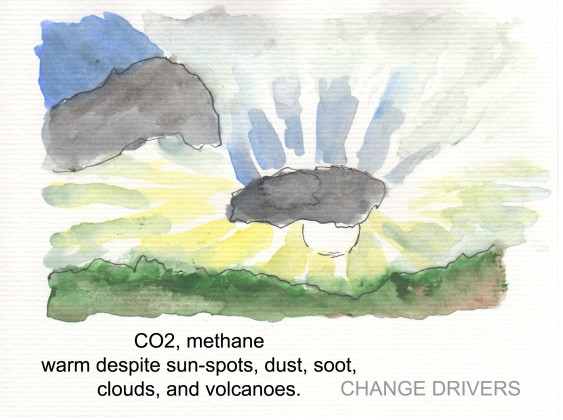
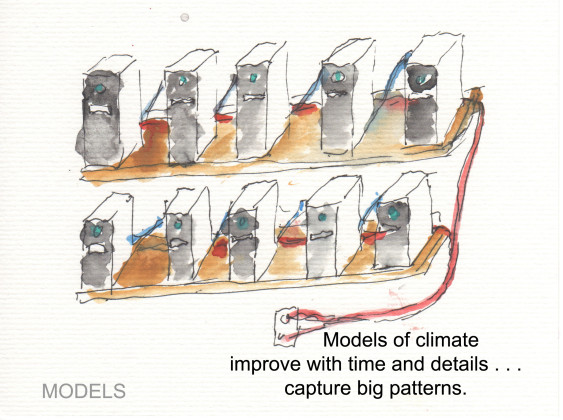
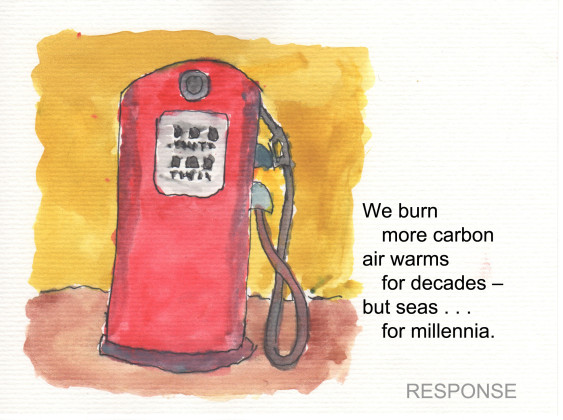
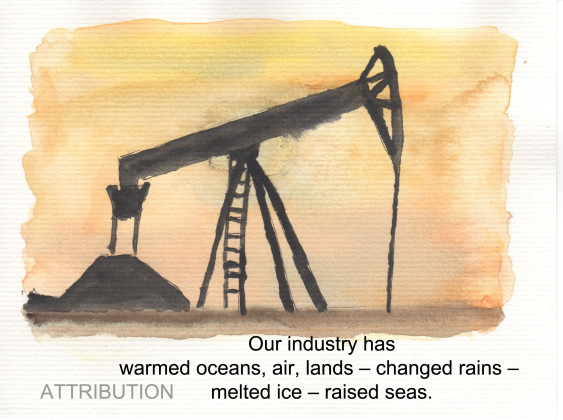
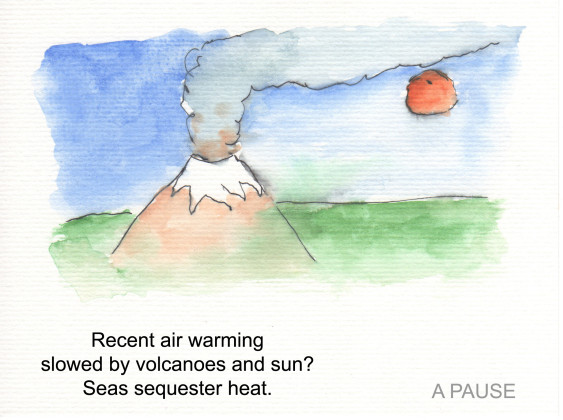
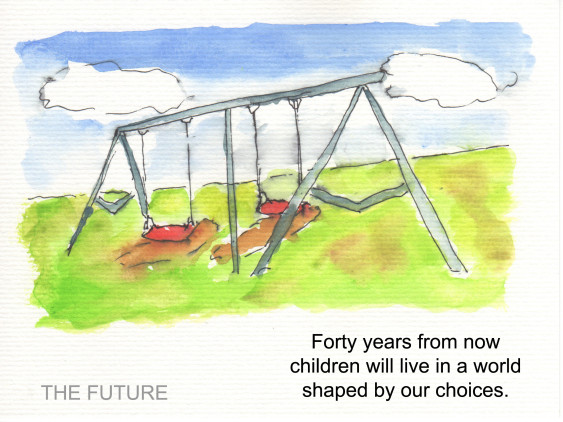
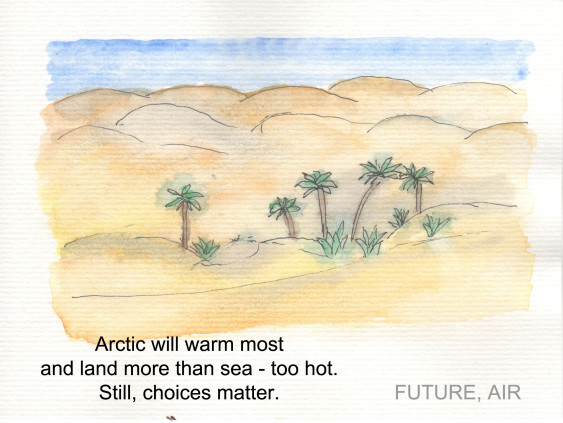
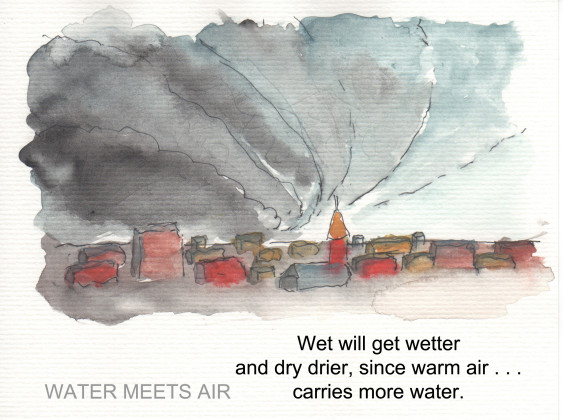
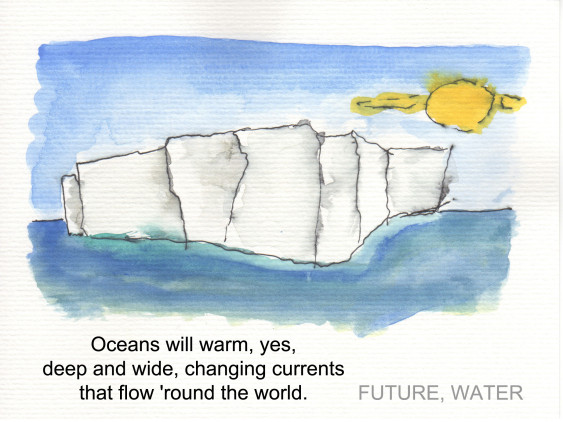
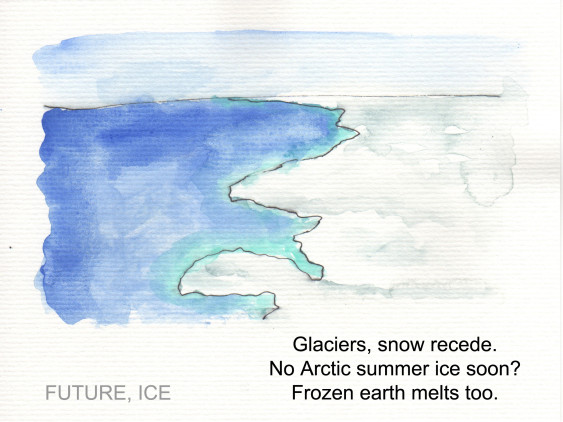
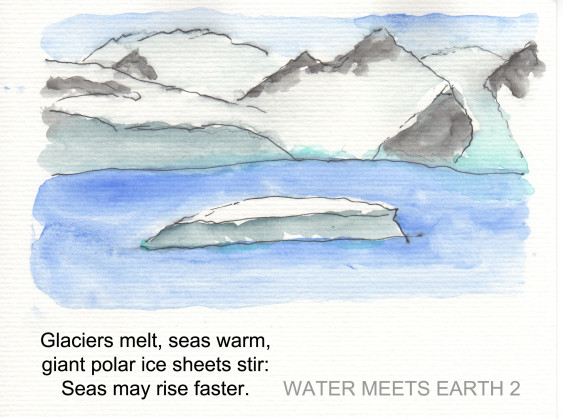
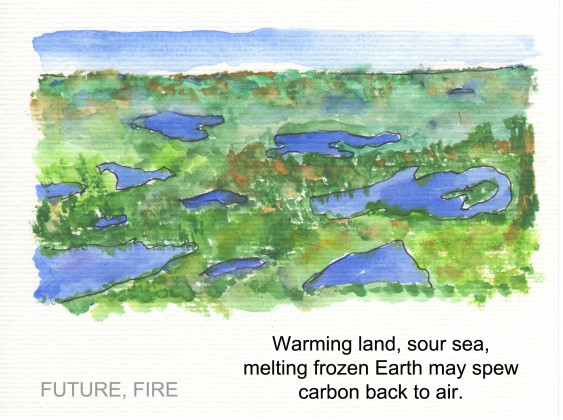
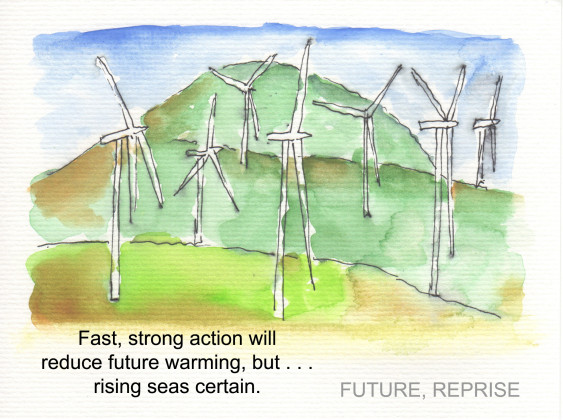
A note from Greg Johnson: This work is an attempt to distill into haiku “The Summary for Policymakers of the Working Group 1 Contribution to the Intergovernmental Panel on Climate Change Fifth Assessment Report.” The result is solely my own creation, so any views or opinions expressed herein are my own, and do not necessarily reflect the views of the US Government, the IPCC, or any other entity.
[button link='{“url”:”http://www.sightline.org/series/flashcards/”,”title”:”Love what you|apos;re reading? Find more messaging inspiration in our Flashcards series.”}’ color=”orange”]
Interested in using Dr. Johnson’s series for personal or educational use? Please download it in your preferred format below. However, explicit permission must be granted by Sightline (please email Serena Larkin) and Greg Johnson for republishing this work in full or in part. In no instance may the work be republished for profit.
- En español: Todos los haiku, en español
- Presentation: All slides, full size (PDF)
- Print-out: All slides, 6 per page (PDF)
- Booklet: Slides arranged with instructions to cut and fold into a booklet (PDF)
- Video (not downloadable):
[button link='{“url”:”http://www.sightline.org/2014/12/23/reporte-completo-del-ipcc-en-19-haikus-ilustrados/”,”title”:”Click here for a Spanish-language version.”}’ color=”green”]
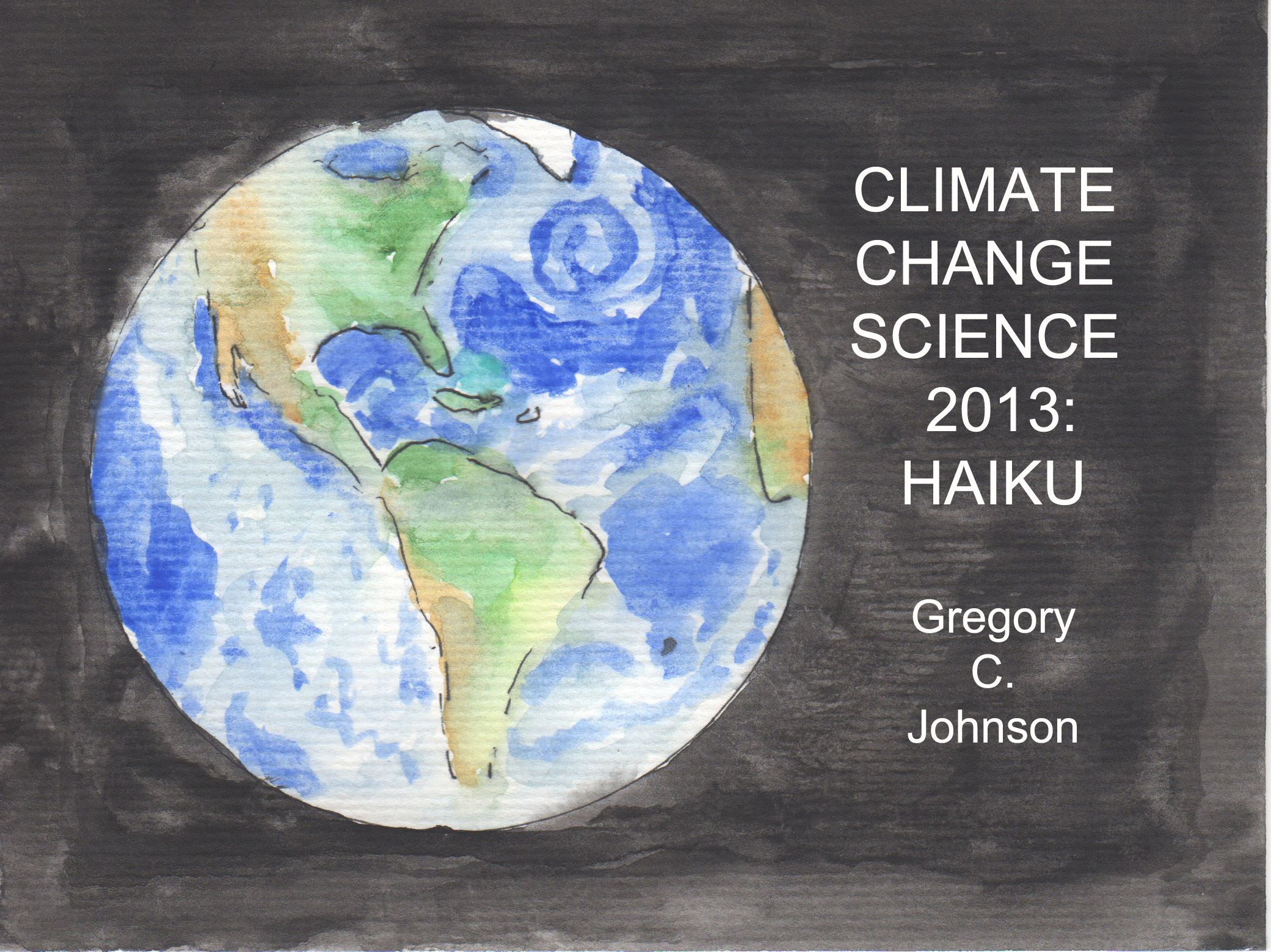

Comments are closed.